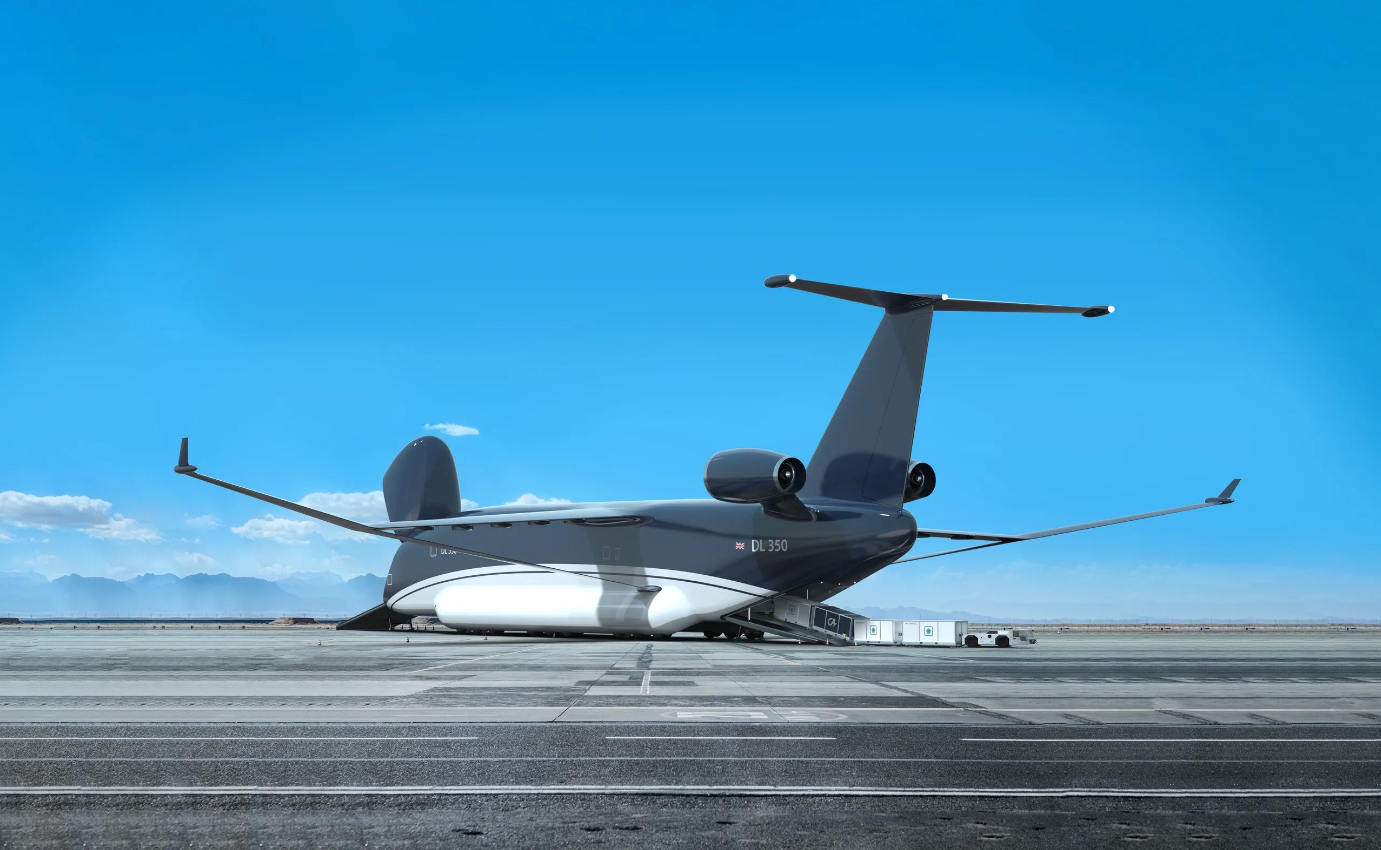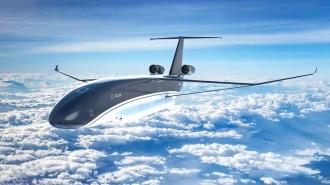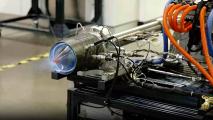A UK startup has an ambitious plan to slash the cost of air freight — by shipping goods in a massive autonomous cargo plane.
Fast or cheap — pick one: For shipping companies, deciding how to transport goods long distances is largely a trade off between cost and speed.
It could take weeks for goods to reach their destination if sent by boat, while a cargo plane could potentially make the same trip in hours. Air freight is way more expensive, though, and it also has a larger carbon footprint and more size and weight restrictions.
What’s new? Aerospace startup Droneliner has just revealed plans for a new kind of autonomous cargo plane it says could cut the cost of air freight by more than 70%, bringing it closer in price to ocean freight.
These savings come from a combination of increased fuel efficiency, lower operating costs, optimized loading/unloading methods, a large payload capacity, and more, according to the startup.
The plane is still in the earliest stages of development — so far, all the company has is a design — but if the craft actually makes it into use, it could revolutionize air freight.
Droneliner says its autonomous cargo plane could cut the cost of air freight by more than 70%.
Big plans: One of the most obvious differences between Droneliner’s autonomous cargo plane and existing options is the shape: instead of the usual cylindrical body, it has a rectangular one with smoothed edges, making it better suited for transporting standard-sized shipping containers without wasting space.
Rather than transporting goods in metal shipping containers, Droneliner envisions using ones made of lightweight plastic and vinyl to save on fuel costs — when empty, these weigh about 80% less than standard containers, according to the startup.
It has proposed two models of the cargo plane: the DL200 will be capable of holding 40 of these lightweight containers and a maximum payload of 200 tons, while the DL350 will support 70 of them and a maximum payload of 350 tons. For comparison, Boeing’s 747-8 — one of the largest cargo planes to ever fly — has a payload capacity of about 137 tons.

The smaller plane will feature one turbofan engine, while the larger will have two, but they have the same estimated range of 6,500 nautical miles — a bit more than the distance from Beijing to Los Angeles. Both aim to be hybrid electric and able to use sustainable jet fuels, according to Droneliner.
Because an autonomous cargo plane doesn’t need a cockpit, the front and back of the aircraft can be opened and containers rolled into or out of its body, making for faster loading and unloading. Eliminating the crew also eliminates the need for pressurization on the plane, further cutting costs and weight.
Given the initial risk involved in flying such a massive plane without a pilot on board, Droneliner plans to explore the possibility of operating out of retired military airfields in less-populated areas, rather than out of busy airports.
Looking ahead: Droneliner still needs to actually build, demonstrate, and obtain regulatory approval for its autonomous cargo plane, and Mike Debens, the startup’s design director, told FlightGlobal he estimates it’ll take more than $10 billion to get it into production — that funding has yet to be secured.
Still, Droneliner’s advisory board includes several experts in aerospace engineering, including a former chief systems engineer for Airbus, a former chief engineer at Rolls Royce, and the chief designer for Airbus’ A380, the world’s largest passenger plane.
Clearly, they see potential in what the startup is trying to achieve, and Debens said he envisions Droneliner partnering with companies in several industries — shipping, logistics, retail, aerospace, etc. — to bring its vision for the future of air freight to life.
We’d love to hear from you! If you have a comment about this article or if you have a tip for a future Freethink story, please email us at [email protected].




